Tough cops and colourful characters: Crime writer Andrew Rule answers burning questions
Were the right dogs used in the search for missing Ballarat mum Samantha Murphy? Does Sydney have a worse gang problem than Melbourne? Seasoned crime writer Andrew Rule addresses questions on cases and colourful crims that have crossed his path.
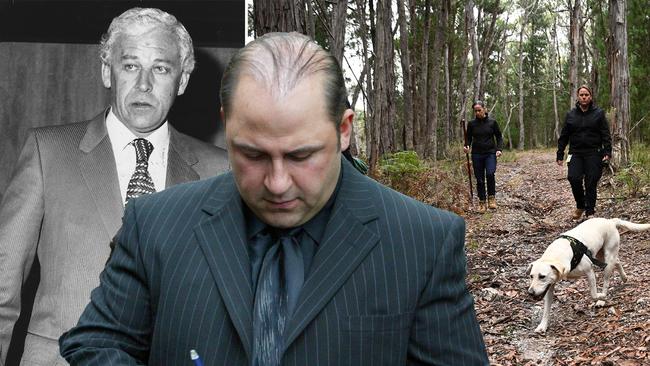
Andrew Rule
Don't miss out on the headlines from Andrew Rule. Followed categories will be added to My News.
Renowned crime writer Andrew Rule has spent most of his journalism career surrounded by “colourful identities”, killers and career criminals. In this edited extract from this week’s Life and Crimes podcast, he takes reader questions about some of those he has crossed paths with.
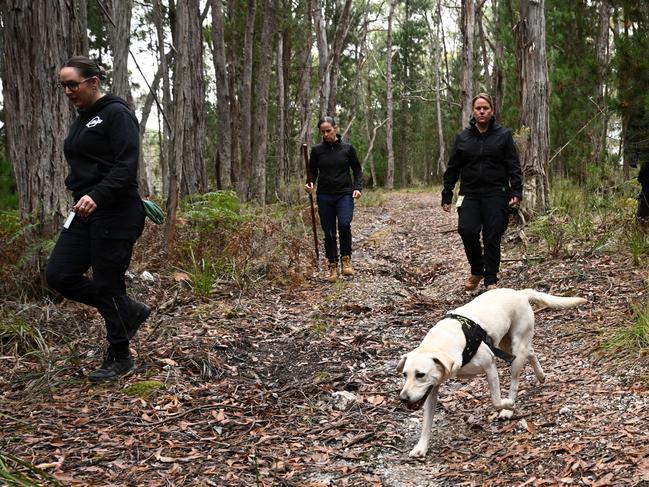
Greg and others have asked, do we know if the right types of dogs were used in the search for Ballarat woman Samantha Murphy?
The right type of dogs were used to find electronic material. They’re great, these federal police dogs are trained to find things like USBs, or phones or laptops. In the great mushroom drama down in South Gippsland, they brought those dogs in to find electronic material. However, I would argue that what is lacking all over Australia, at Ballarat, and everywhere else, what we don’t have is the capacity to track quickly is missing people.
When someone goes missing in Australia, we do not seem to have the right dogs available to fly in at, say, six hours notice and pick up the trail and follow it to wherever it leads. Now, if it leads to a body, so be it, at least you found the body. If it leads to a dead end, at least you know that person, the missing person, got to that particular point, and then, presumably, was abducted in a vehicle or whatever it might be. It would give some answers.
Until the authorities apply the same value to tracker dogs as they do to other highly trained dogs, such as the ones used at customs to find contraband and so on, we will continue to not find lost people at all or to find their bodies much later.
I would suggest that if you were related to a lost person, let’s just say a lost child, you’d be much happier to see a tracker dog turn up in the first 12 hours to try and find that person while they may still be alive, rather than to see the police produce a cadaver dog six weeks later, to look for the body of your lost child.
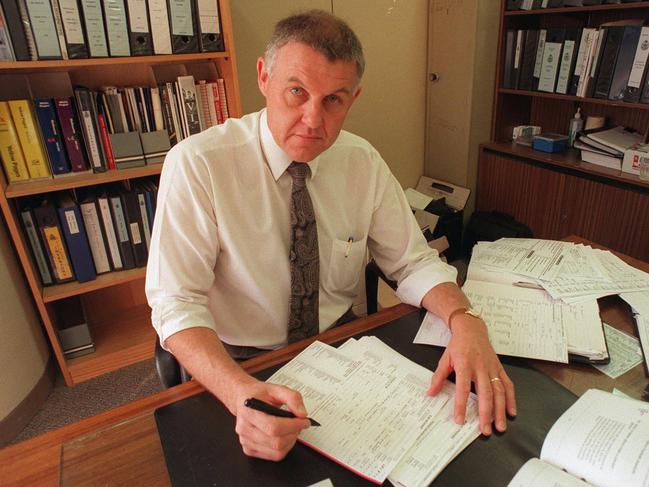
Steven wonders if you can share any experiences about Ron Iddles, former homicide cop, podcast host and TV identity.
Over the journey, Ron always had the reputation in the police force of being precise and fastidious, and painstaking. Iddles was the guy who didn’t take the shortcuts.
Unlike a lot of those old-time homicide coppers, he wasn’t a big drinker. He was a fairly clean living sort of guy. He didn’t really fit the same mould as many of his contemporaries, which made him a bit different from some of them. It also meant back in those days, I think that he got better results than some others because he was sober.
He was hard working. He did have a great work ethic, I think a personal morality, and I think he always thought that he owed it to victims and to their families to find bodies or to find the killer or whatever it might be and there’s no doubt that a lot of people shared that opinion of Ron.
In retirement, Ron has come to the fore and become well known as the man who instigated the inquiry that led ultimately to the exoneration of Jason Roberts in the Silk Miller police murders. Now we won’t go into all the ifs, buts and maybes here, but right or wrong, that meant that Ron was going squarely against the prevailing opinion in the police force. And it made him deeply unpopular with many police and ex-police.
Rather than being the popular figure he had been when he worked with the Police Association, we now have a situation where Ron is a little bit on the outer, with many police and ex-police, particularly of his own era. And so that might explain that Ron has decided to, in retirement, to stay in the public eye to respond to a lot of requests for him to appear on, radio and television, rather than just fade away into the sunset. Ron has never done any harm to me. And I think he’s done a lot of good work. Is he always right? I’d say only most of the time.
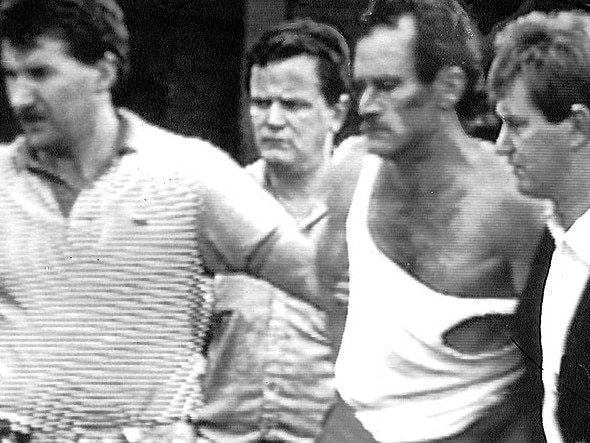
Jay asks: Can you say what an average day looked like for an armed robber, or that sort of ilk in Melbourne in the 1980s?
Well, one thing is there was plenty of work available for them then, because there were a lot of banks, and bank branches, and building societies. And they all had money in them. Because in those days, we all got paid cash every payday in the 80s. At least, we got cash money, and we spent it in cash. And therefore there was a lot of cash sloshing around the system.
This meant that our robbers had a cornucopia of choice when it came to robbery targets and meant that every other day, there was some sort of big armed robbery — at banks, building societies, payrolls, they were going off everywhere.
That was until the fairly sudden introduction of bank security where they put in these massive thick plate glass screens that would thump down. These made the armed robber redundant within a couple of years. And that’s when they switched for a while more to cash vans and armoured cars. And then eventually, those sort of robbers almost went out of business.
What did a day look like? Well, a cop said to me once, crooks, they only know two times — daytime and night-time. They weren’t big on meeting you at nine o’clock, or ten-thirty.
The average day for a crook in those times would be to get up late and scratch their belly, laze around the place, and probably go down to an inner suburban pub where they’d meet other blokes of the ilk. And they would chat among themselves planning this or planning that or they would bet. Crooks are gamblers by nature, because how can you be a crook if you’re not a gambler, because you’re gambling your freedom or your life?
The drink was big for most of them. And those few who didn’t drink tended to survive. Same with the police. Those few police and crooks who didn’t drink, tended to live longer, and get along better than those who did. And the other thing, of course, is they were mostly males, these fellows, these armed robbers, and they would run around with naughty girls, bad girls, girls other than their ever-loving wives, because that’s the sort of people they were.
And now and again, they’d plan a job and pull it off. So they’d have to, perhaps get up early or stay up late to go and look at a place and do surveillance and they might put on slightly different clothes or whatever it might be and wander around, looking to case the place.
The really good crooks like Russell Cox would wear something like a grey dust coat, and maybe a pair of horn rimmed glasses, maybe a hat or a cap or something, and carry a clipboard, something like that. They’d pass themselves off as somebody they weren’t. And those smart guys would walk into a place as if they owned it, as if they were supposed to be there, and they would observe things and jot it down on their clipboard, and they would act as if they were there from the electricity company, or Telecom or whatever it might be.
But they were taking notes, ready to pull a big armed robbery. These were the very good armed robbers. They weren’t all like that.
Tony is a big fan and wonders if you think, given the number of appeal balls in play due to the tainted evidence provided by the Lawyer X investigations and subsequent legal actions, that there may be a raft of convictions overturned?
That’s a good question, but a hard one to answer. There’s no doubt that some convictions might be overturned, but not as many as has been mooted. Because, as has been pointed out by others, some of those big convictions against big names, ie Tony Mokbel, were made for very good reasons that had nothing to do with Lawyer X. There was red hot evidence against Tony Mokbel, notably, and others.
With Mokbel, the fact is that a man that is known as The Musician who is protected witness for life, was able to put a USB into a laptop computer and draw out all the material in it, which gave the police a massive amount of information about money transfers from Australia to Greece, or wherever, which led the police to Tony Mokbel. And so that sort of information, caught and convicted Mokbel and didn’t need Lawyer X to put the cherry on top. I’m not suggesting that there aren’t other cases where perhaps her interference will not have some effect.
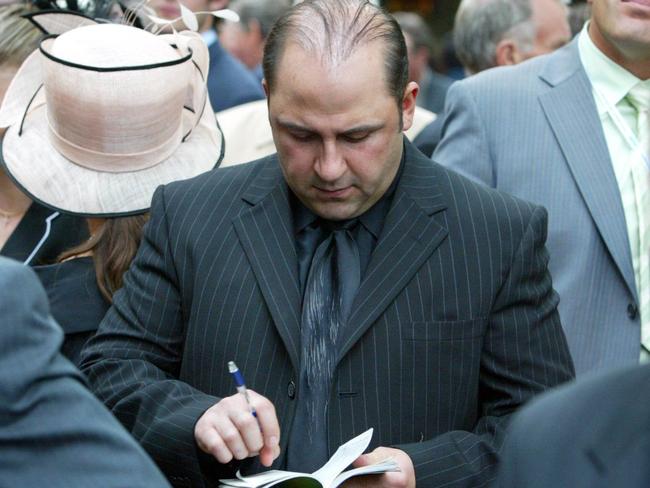
James asks: Where did the term colourful racing identity come from? And do you have an all time favourite or favourites?
It’s something that we’ve all come to use, tongue in cheek. It was coined in Sydney, where the social spectrum was infested with colourful racing identities.
And it was code back in the day in the media, in the 80s, maybe even the 70s, for people like George Freeman, who was an organised crime czar, he was a big deal, and he was a big race fixer. So George Freeman was probably the first Australian colourful racing identity — so-called.
He wasn’t the first of them, but he was the first to get that name. He was dubbed that by the media as a way of relaying what he was, without actually defaming him.
And would he be your “favourite”?
Well, among colourful racing identities, I suppose he’s one. To some extent Tony Mokbel was. He was a crook who used his money on the racetrack — mainly he was laundering money but it’s a job they enjoyed. They love gambling and love the punt so, it was a labour of love for a lot of those guys.
A lot of crooks would rob a bank and end up dropping a heap of it at the racetrack. Even somebody like the late Billy Longley, who for a man who killed a dozen people or something, a career criminal, he was a very sort of sensible chap, which was why he ended up dying in his 80s of old age, he wasn’t shot dead.
Even he told me once that he’d dropped a massive amount, like, I think 10,000 pounds or something. It was enough to buy two or three houses, a lot of money, he dropped it at the races and it discouraged him from betting on horses for quite a while he told me
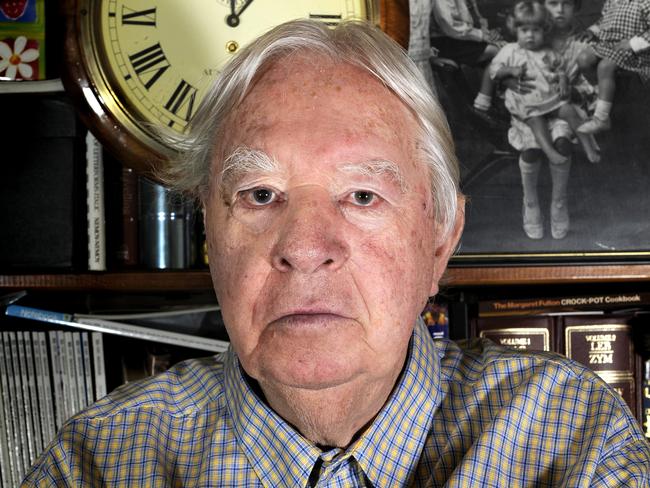
Diane asks, is the gang problem worse in Sydney or Melbourne?
We like to think we’re better than Sydney. And we like to think our gangsters are better. And traditionally, I’d say they were. The late Billy Longley always said Sydney for money and Melbourne for blokes. And what he meant was if you want a tough guy to shoot somebody, you had to hire a Melbourne fella, he’d do the job and he wouldn’t give you up. But Sydney was a place to earn the money, they would pay you to drive to Sydney and do something, which often happened with Billy — he would drive up there and do a job and drive back again.
But these days, I’m thinking that Sydney because of the big bikie and Middle Eastern crime scene up there, where they’re all shooting each other. It’s in the middle of a wave, which is very similar to the wave we had in Melbourne in the early 2000s.
It will pass eventually, because they’ll shoot each other until the police get on top of it. And it’ll ease up. But the current Middle Eastern and/or bikie crime wave in Sydney is easily as big as Melbourne’s underbelly and underworld gangland war of 20 years ago.
Have a question for Andrew? Email us at lifeandcrimes@news.com.au



